World
The Effectiveness of Sanctions on Russia’s Economy: Insights from Vladislav Inozemtsev
Explore the insights of Vladislav Inozemtsev on the effectiveness of sanctions against Russia’s economy. This analysis delves into the impacts, challenges, and implications of economic restrictions in shaping Russia’s financial landscape.

The Impact of Sanctions on Russia’s Economy: A Conversation with Vladislav Inozemtsev
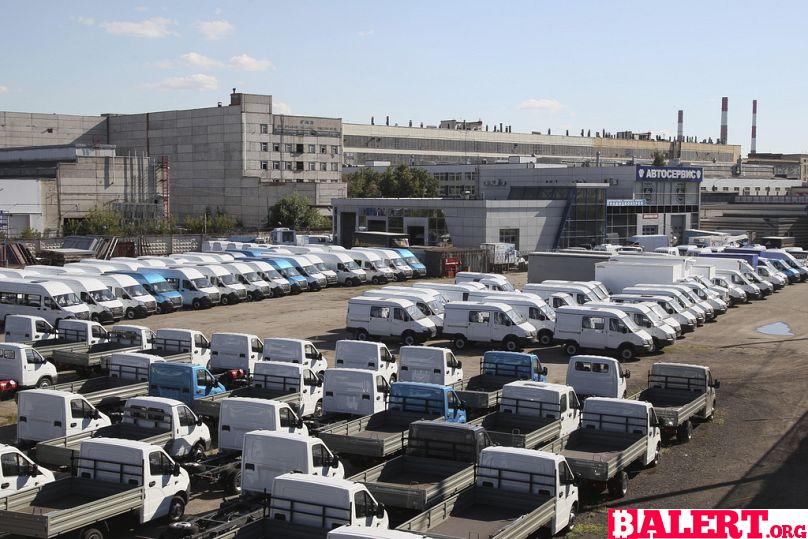
Since the full-scale invasion of Ukraine by Russia in early 2022, a series of stringent Western sanctions have been implemented with the aim of crippling the economy of Russian President Vladimir Putin and hindering his military advances. These measures were added to the existing sanctions imposed by the European Union in response to Russia’s initial incursions into eastern Ukraine and the unilateral annexation of Crimea in 2014. However, the new wave of sanctions has proven to be much more extensive, targeting not only the state and businesses but also individuals connected to the Kremlin.
As the conflict extends into its third year, debates have emerged regarding the resilience of Russia’s economy in the face of these sanctions and whether the Kremlin’s claims about their ineffectiveness hold any truth beyond mere propaganda. Euronews engaged in a dialogue with Vladislav Inozemtsev, an economist, political scientist, and advisor at the MEMRI Institute in Washington, to explore the actual effectiveness of these sanctions and their real impact.
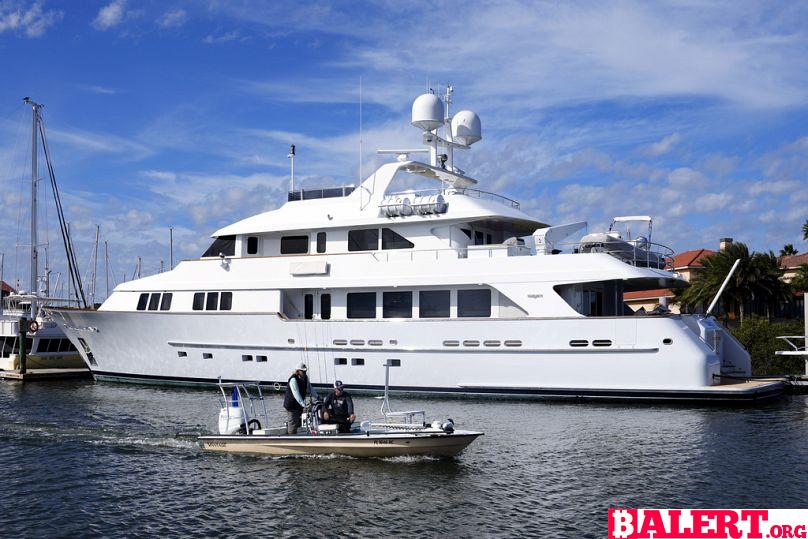
Euronews: With Ukraine’s recent military actions deep within Russian territory, supported by Western allies, does it seem like the economic sanctions are producing tangible results?
Vladislav Inozemtsev: In Russia, the prevailing sentiment towards these sanctions is one of mockery. A recent comedy film script was approved that features a plot where U.S. President Joe Biden, frustrated by his advisors’ claims that sanctions have yet to “finish off” Russia, decides to go undercover in Moscow to discover the reasons behind the “stability of the Russian economy.” However, the mood among Russian entrepreneurs is far from jovial; they are feeling the severe impact of these sanctions. The once-thriving automobile industry, built on Western partnerships in the 2000s and 2010s, is nearly non-existent. Key export-driven sectors such as forestry, metallurgy, and gas production have also suffered significantly. That said, it’s important to note a few critical factors: first, the overall economic impact isn’t catastrophic as the economy is shifting towards domestic markets, and the government continues to manage its budget despite these challenges. Second, the military-industrial complex remains largely unaffected, and no significant anti-war mobilization has emerged. Third, these sanctions can be a double-edged sword.
Euronews: What do you mean by that?
Inozemtsev: The repercussions of these sanctions also extend to the countries that imposed them. For instance, cutting ties with Russia in the energy sector led to soaring gas prices in 2022, which forced European governments to subsidize consumers at a staggering cost—some estimates suggest nearly €800 billion. Meanwhile, this surge in prices simultaneously provided Putin with an additional $78 billion (€70.5 billion) in export revenues for that year. Additionally, the freezing of the Bank of Russia’s assets has resulted in the confiscation of at least $140 billion (€126 billion) worth of Western investments in Russia, and this is just the beginning of the fallout.
Euronews: In light of this, which sanctions do you consider effective, and which do you think are ineffective?
Inozemtsev: Sanctions today can be viewed as a form of warfare. In any military operation, success is measured by the extent of damage inflicted on the enemy relative to one’s own losses. Therefore, I would argue that sanctions are effective if they cause more harm to Russia than to the countries imposing them.
Related
- What about sanctions? French imports of Russia’s LNG surge
- EU executive brushes off Hungarian and Slovak anger over Russian oil squeeze
Euronews: But damage can be quantified in various ways.
Inozemtsev: Absolutely, and there are several nuances to consider. For example, European nations have seized over $58 billion (€52 billion) in assets belonging to Russian oligarchs. In retaliation, many of those who had invested heavily in Western markets have returned to Russia, resulting in a record number of dollar billionaires in 2024. These individuals have rallied around Putin more staunchly than ever, as they find themselves trapped in a “golden cage” with no escape route. Moreover, Western authorities have incurred significant costs—tens of millions of dollars—securing seized properties and potentially facing even larger payouts as compensation for legal disputes arising from these sanctions.
Euronews: Have the sanctions proven to be justifiable? Your writings suggest a general opposition to measures that adversely affect ordinary Russians rather than the ruling elite.
Inozemtsev: While some, like Ilya Yashin and Andrei Pivovarov, might argue otherwise, I do not share that perspective. I believe that sanctions against Russia and Russians should be justified, universal, and directly related to the intergovernmental relationships between the sanctioning countries and Russia.
Euronews: Is the imposition of sanctions selective and lacking in logical consistency?
Inozemtsev: You could certainly make that argument. If we accept that the war against Ukraine was initiated by Russian elites, then sanctions should logically be imposed on all ministers, deputies of the State Duma, members of the Federation Council, and all individuals affiliated with Putin’s United Russia party. Similarly, if the Russian budget is financing the war, it would make sense to target all individuals and corporations contributing significant federal taxes. I initially welcomed the ban on air travel to Russia. While it may lead to Chinese airlines dominating the market, the rationale was clear: communication was severed. However, I find it perplexing that only 48 out of 125 Russian billionaires are under sanctions, or why 60 out of nearly 260 Russian banks are sanctioned while the rest are not. Moreover, I question the Western authorities’ justification for restricting or banning the sale of Russian oil to India, as that is a sovereign relationship between two third countries.
Euronews: The situation appears more complex than it initially seems.
Inozemtsev: Many experts argue that labeling certain individuals as “oligarchs” or “influential businessmen” is as arbitrary as designating someone a “Trotskyist” or “counter-revolutionary” during Stalin’s era. This can occur because sanctions have sometimes been based on the opinions of biased experts. A notable example includes Mikhail Fridman and Petr Aven, whose sanctions were guided by the views of Ilya Zaslavsky, who had previously been dismissed from one of their companies. There have also been instances of erroneous information leading to sanctions that were later overturned by Western courts—consider the case of Alisher Usmanov, where an article in Forbes was deemed libelous, yet the sanctions against him remain intact.
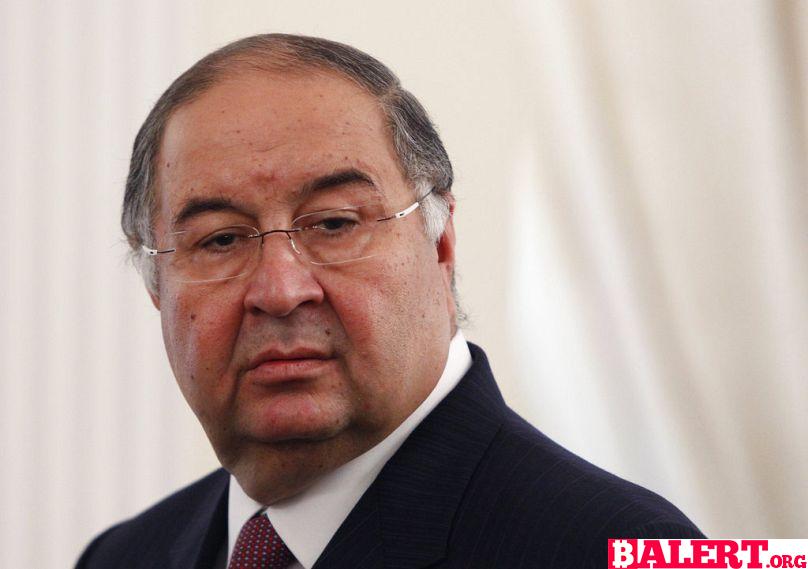
Euronews: So, are sanctions against businesses often lacking in legal foundation?
Inozemtsev: Based on several high-profile cases, I would assert that they are often arbitrary and extrajudicial. Take for instance the German prosecutor’s investigation into Usmanov; they struggled initially to secure a search warrant, and when they finally did, the Frankfurt Land Court ruled the warrant invalid. Yet, the prosecutor’s office continued the investigation and retained the seized assets—does this reflect a commitment to the rule of law? Another case involves at least 14 Russians who had lawfully obtained Cypriot citizenship through government-approved investment programs, only to have their citizenship revoked without any judicial oversight due to sanctions.
Euronews: Can you draw comparisons with the case of Pavel Durov, the creator of Telegram, who was recently detained in France?
Inozemtsev: It’s challenging not to draw parallels. Durov was accused of serious offenses directly linked to his business, yet his business was not confiscated, and he retained his legal documents in France. His case underwent legal scrutiny where the court dismissed many charges and denied the prosecutor’s request for arrest—this aligns with legal norms. In contrast, sanctions often lack such due process. We even see attempts to sanction the relatives of “oligarchs,” many of whom have no active business interests in Russia. For example, Nikita Mazepin, son of Uralchem’s owner, faced sanctions in 2022 and had to leave his F1 team, although he eventually managed to challenge those sanctions successfully.
Euronews: However, there are instances where sanctions have been lifted.
Inozemtsev: Indeed, the EU courts have lifted sanctions against individuals like Violetta Prigozhin, the ex-wife of Fridman, and Aleksandr Pumpyanskiy, ruling that familial ties cannot justify the imposition or continuation of sanctions. Yet, the individual circumstances of each case should not vary in a functioning legal system.
The current approach does significant harm not only to Russian entrepreneurs—who the Kremlin will ultimately find ways to support—but also to the integrity of Western legal systems. In my view, sanctions are becoming an extrajudicial pressure mechanism that increasingly undermines established legal frameworks.
Euronews: That is a bold assertion. What additional arguments can you provide to support this?
Inozemtsev: There are numerous points to consider. For instance, legal norms dictate that laws cannot be applied retroactively. Yet, many Russian “oligarchs” were sanctioned based on their participation in a meeting with Putin on February 24, 2022. At that time, the EU did not view engagement with Putin as discreditable. Furthermore, legal principles dictate that individuals cannot be punished twice for the same offense; however, this principle is being disregarded in sanctions policy. For example, after the EU imposed sanctions on Fridman and Aven, which they successfully contested, the European Council later extended those sanctions under new justifications, requiring them to challenge the new measures from the beginning. During this period, both men were not engaged in any activities in Russia.
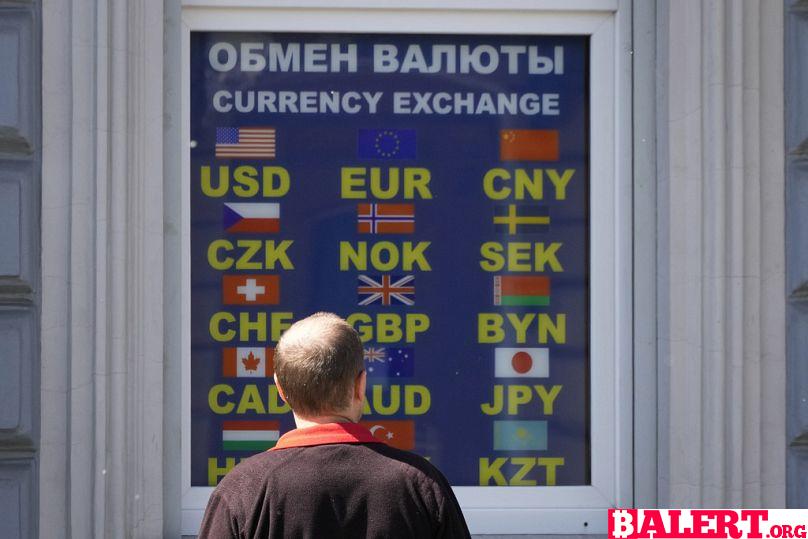
Lastly, the law should impose uniform penalties for similar unlawful acts. In Usmanov’s case, one of the charges was based on his ownership of the newspaper Kommersant, which was allegedly a tool for Putin’s propaganda. Yet, Grigory Berezkin, who owns RBC, from which many independent journalists were expelled, has been treated differently, with sanctions against him being lifted without any legal proceedings.
Related
- Sanctioned Russian oligarchs bag stake in UK’s biggest oil company
- Oligarch sanction setbacks are no big deal, Brussels says
Euronews: Many argue for collective responsibility, which could lead to a recognition of the regime’s wrongdoing and provoke protests among the populace. However, ordinary citizens, frustrated by the lack of essential medicines, often direct their anger not at the government but at the West.
Inozemtsev: To hold citizens accountable for their association with the regime, one must first acknowledge its criminal nature. This was the foundation of the Nuremberg Tribunal’s decisions, which recognized the leadership of the NSDAP, the Wehrmacht’s high command, and organizations like the Gestapo and SS as criminal entities. This legal framework allowed for the prosecution of prominent businessmen who collaborated with these groups—namely, those who produced weapons and utilized slave labor in concentration camps. However, those who merely paid taxes or supplied goods to the Wehrmacht were not charged.
As long as Putin remains merely a suspect in war crimes, and most Russian officials responsible for the war’s orchestration are under sanctions without facing proper accountability, it is both illegal and illogical to extend this level of responsibility to entrepreneurs. This approach merely consolidates their allegiance to the regime instead of fostering potential alliances in the fight for a better Russia. I’ve been vocal about this perspective in the Western media since the onset of the war, yet it often goes unheard; there’s a persistent belief that with just a bit more pressure, the oligarchs will rise against the regime, leading to its downfall. Frankly, this perspective reflects a profound naiveté, a sentiment I’ve expressed even before the invasion of Ukraine began.
World
Dominique Pelicot Testifies in Harrowing Rape Trial
Join us as Dominique Pelicot courageously testifies in a harrowing rape trial, shedding light on the complexities of trauma and justice. Her powerful story raises crucial questions about the legal system and the importance of support for survivors.

Dominique Pelicot Takes the Stand in Shocking Rape Trial
In a courtroom drama that has captivated France and garnered international attention, Dominique Pelicot, the man at the center of a harrowing rape trial, finally addressed the court. With tears streaming down his face, he recounted how his wife had been instrumental in helping him cope with a tumultuous past marked by trauma. He revealed that he had endured a sexual assault at the tender age of nine while hospitalized, and he also witnessed a gang rape during his teenage years while working as an apprentice electrician on a construction site.
“She didn’t deserve this, I acknowledge that,” Mr. Pelicot stated, his voice barely audible as he struggled to convey his emotions. The gravity of the situation weighed heavily on him, and the courtroom fell silent, straining to catch his every word.
Now 71 years old, Mr. Pelicot faces serious allegations of drugging his wife, Gisèle Pelicot, whom he has been married to for half a century, over a span of nearly ten years. Prosecutors contend that he used drugs to render her comatose, allowing him to rape her repeatedly. Furthermore, authorities allege that he went so far as to invite numerous men into their home, facilitating a nightmarish scenario where they, too, engaged in the assault of his wife.
Overall, 51 men, including Mr. Pelicot, are on trial concurrently, primarily facing charges related to the aggravated rape of Ms. Pelicot. Among them, one individual has already pleaded guilty to similar crimes, admitting to drugging his own wife to assault her and inviting Mr. Pelicot to partake in the horrific act while she was incapacitated.
Mr. Pelicot’s unexpected testimony came after a tumultuous start to the trial. Just a week in, he was stricken with severe health issues that forced him to miss four consecutive days in court. The head judge ultimately decided to postpone proceedings, as Mr. Pelicot was diagnosed with kidney stones, a kidney infection, and prostate complications, adding yet another layer of complexity to this already harrowing case.
World
Meta Bans Russian State Media Outlets from Social Media Platforms
Explore the implications of Meta’s decision to ban Russian state media outlets from its social media platforms. Understand the impact on information dissemination and the ongoing battle against misinformation in the digital landscape.

Meta Imposes Global Ban on Russian State Media Outlets
In a significant move, Meta Platforms, Inc., the parent company of Facebook, has announced the prohibition of Russian state media outlets, including RT (Russia Today) and Rossiya Segodnya, from all its social media platforms. The decision stems from the company’s concerns regarding the deceptive strategies employed by these media organizations to execute covert influence operations across the internet.
Meta made this announcement on Monday, emphasizing that the ban will be enforced worldwide across its various platforms, such as Instagram, WhatsApp, and Threads. The rollout of this ban is expected to take place over the coming days.
Statement from Meta
A spokesperson for Meta elaborated on the decision, stating, “After careful consideration, we have expanded our ongoing enforcement actions against Russian state media outlets. As a result, Rossiya Segodnya, RT, and other affiliated entities are now banned from our applications globally due to their involvement in foreign interference activities.”
For further insights into this development, watch the video in the player above.
World
Trump Recalls Alleged Assassination Attempt While Golfing
Explore Donald Trump’s chilling recollection of an alleged assassination attempt he experienced while enjoying a round of golf. Delve into the tense moments and his reflections on safety, fame, and the unpredictability of public life.

In a recent interview on the social media platform X, Republican presidential nominee Donald Trump recounted a harrowing incident he claims to have experienced while playing golf. Trump described how, during a peaceful Sunday morning round with friends, the tranquility of the day was abruptly shattered by the sound of gunfire in the air.
“It was a beautiful day, everything was just perfect,” Trump reflected. “Then all of a sudden, we heard shots being fired—probably around four or five in total.” He went on to explain that a Secret Service agent was the first to spot the suspect, who was allegedly armed with an AK-47, a powerful assault rifle.
“The agent saw the barrel of the weapon and immediately took action, returning fire at the barrel and aiming in the direction of the bushes,” Trump detailed. “I would have loved to have sunk that last putt, but we decided it was best to leave the scene promptly.”
Trump expressed his gratitude towards the agents and a vigilant civilian who aided in tracking down the suspect, who was eventually apprehended following a high-speed chase.
Suspect Faces Multiple Federal Gun Charges
The FBI has identified the suspect as Ryan Wesley Routh, accusing him of targeting Trump during his time at the golf club in West Palm Beach, Florida. According to an FBI report, Routh had allegedly hidden among the hedges of the golf course for an astonishing 12 hours. Authorities discovered an SKS-style assault rifle, a GoPro camera, and a bag of food at the scene.
The 58-year-old Routh is now facing two serious federal gun charges. If convicted on both counts, he could face a combined maximum sentence of 20 years in prison. Notably, neither of the charges is directly related to an assassination attempt. The first charge pertains to possessing a firearm despite a prior felony conviction, which carries a potential 15-year sentence, a fine of $250,000 (€225,000), and three years of supervised release.
The second charge involves possession of a firearm with an obliterated serial number, which could result in a five-year prison term, the same financial penalties, and also three years of supervised release. As the investigation continues, additional charges could be forthcoming.
While the motive behind Routh’s actions remains unclear, his digital footprint reveals strong political affiliations, particularly concerning issues surrounding Ukraine and China. Routh consistently expressed support for Ukraine across various social media platforms, even claiming to have orchestrated a recruitment scheme for international volunteers aiming to assist Ukraine in its fight against Russia’s invasion. This behavior has been denounced by Ukrainian soldiers and members of the International Legion, who disavowed Routh’s actions and motives.
-

 Business4 months ago
Business4 months agoObituary: Dan Collins
-

 Business3 months ago
Business3 months agoThe Significance of Jackson Hole: A Central Banking Tradition
-

 Gaming5 months ago
Gaming5 months agoMore than a thousand students vowed not to work for Amazon and Google due to the Nimbus Project.
-
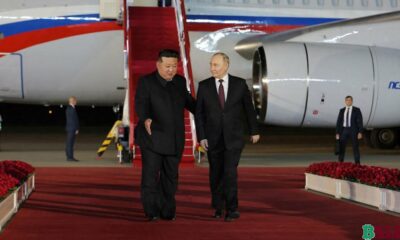
 World5 months ago
World5 months agoRussia and North Korea Strengthen Defense Ties
-

 Business5 months ago
Business5 months agoJump Crypto Invests $10 Million in Pro-Crypto PAC
-

 Tech2 months ago
Tech2 months agoNew Leaks and Features About the Samsung Galaxy S25 Ultra
-

 Article5 months ago
Article5 months agoCreative Design Applications Developed with Artificial Intelligence
-
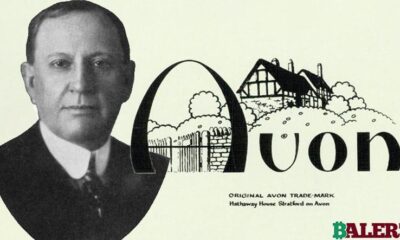
 Gaming5 months ago
Gaming5 months agoThe Inspirational Success Story of Avon’s Founder Who Sold Books Door to Door














